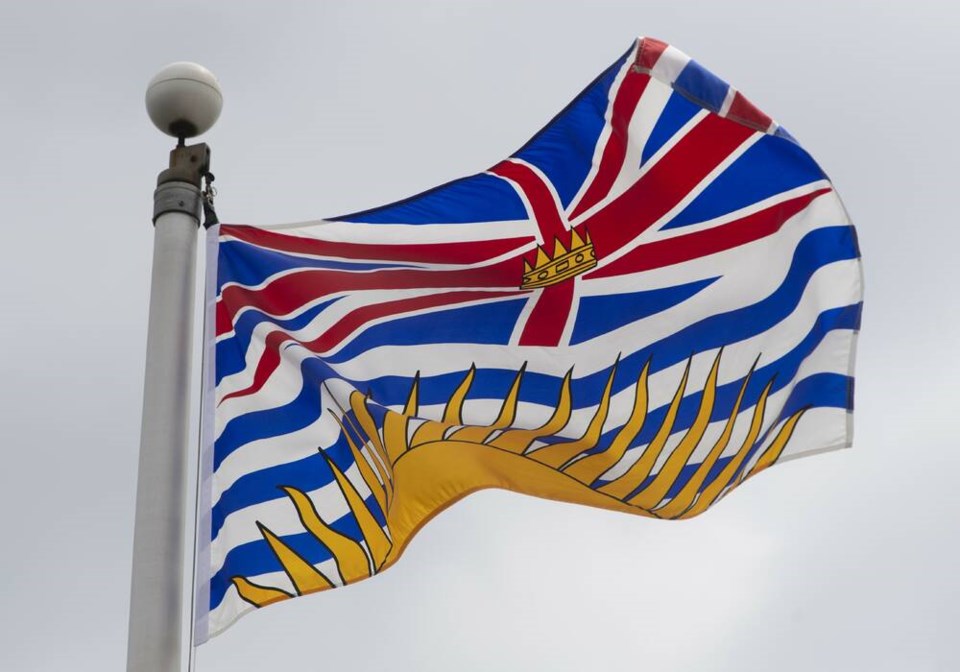How British is British Columbia?
Not very. Or, at least, not as British as it used to be.
The ties between B.C. and Blighty aren’t what they were, even in Victoria, once considered so English that they slapped a Union Jack on the funnel of the Princess Marguerite and lured American tourists here with promises of fish and chips and high tea. No longer is a London accent necessarily treated as less foreign than one from Quebec City.
Even people who identify as ethnically British tend to be a generation or two removed from the old country. Of the 1.4 million British Columbians who were born outside Canada — 29 per cent of our population was birthed elsewhere — just 117,000 came from the United Kingdom.
So why, Ben Pires asks, does this province still have a name (not to mention a flag and other symbols) that implies some people belong here more than others, that consigns those others to the margins? Isn’t that sort of thinking the root of racism?
That’s why the former head of the Inter-cultural Association of Greater Victoria sent letters to every municipal council in the province this month, urging a name change for British Columbia.
This is not the first time Pires has advanced this idea. When he did so in 2008, pitching it to every MLA in the legislature, only a couple replied. Neither did his proposal get much traction when he brought it up again five years ago. Some people got indignant, some treated it as a lark.
This time? Maybe younger people are more receptive, but the 78-year-old still doesn’t expect to see a new name in his lifetime.
But that doesn’t mean he can’t challenge people to think about being more inclusive, about creating a climate in which no one feels excluded, as though their citizenship came with an invisible asterisk. If some of us, being the default setting, never had to think much about identity while growing up, others weren’t allowed to escape the hyphens.
Take Pires. He would prefer to be thought of simply as Canadian, not Indo-Canadian or Asian-Canadian, but hasn’t always been given the choice. Of Indian descent, born in what was then the Portuguese colony of Goa, he moved to the Philippines at age 18 and then to Canada a few years later in 1969. He hoped to resume his television journalism career here, but when he showed up for an interview at BCTV — the forerunner of Global — he ran into a wall. “I’m sorry,” he was told, “the people in B.C. are not ready for a coloured face on TV.”
Demographics have shifted since then. While the 2021 census showed 3.4 million British Columbians name English as their mother tongue, 1.4 million others cite a non-official language. The 83,000 who named Tagalog as a first language outnumbered the 57,000 who said French and the 5,500 who listed an Indigenous language.
Of the close to five million people who now live in B.C., 1.7 million belong to a visible minority, including 550,000 of Chinese, 474,000 of South Asian and 174,000 of Filipino ancestry, along with 61,000 Blacks. Note that Ottawa’s definition of visible minority doesn’t include the 300,000 who identify as either wholly or partly Indigenous.
Odds are that wholly-or-partly thing will make the labelling process more confusing as the generations go by. When the child of a Chinese-Lithuanian couple pairs up with the offspring of an Indigenous-Scottish woman and an Italian-Libyan man, the hyphens might just collapse under their own weight, leaving everyone to just get along with their lives.
In case you’re wondering, the name British Columbia was chosen by Queen Victoria in 1858. She explained her rationale for doing so in a letter to politician/author Sir Edward Bulwer-Lytton (whose name lives on not only in the wildfire-razed town of Lytton, but in an annual bad-writing contest inspired by the infamous “It was a dark and stormy night” opening line to one of his novels).
In essence, the letter said the French objected to the name New Caledonia being applied to B.C.’s northern Interior, as they were already using it in the South Pacific. Names such as New Hanover, New Cornwall and New Georgia were also used to identify lands west of the Rockies but the only one that covered the entire area was Columbia. That name was already being used in South America and the United States, so the queen, without consulting the locals, dubbed this colony British Columbia to distinguish it from the other bits.
There are precedents for changing place names. British Honduras is now Belize and the Dutch East Indies go by Indonesia. French Somaliland morphed into Djibouti, Spanish Guinea became Equitorial Guinea and British Guiana became Guyana.
Will B.C. go that route? Even if it doesn’t, evolution is ineluctable. When Pires was deemed unsuitable for television in 1969, he couldn’t have expected that in 2023 he would see his son Jason as co-anchor of CTV Morning Live in Vancouver. The name might not have changed, but B.C. has.
>>> To comment on this article, write a letter to the editor: [email protected]




